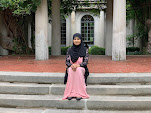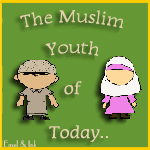It was my pleasure to write this article at the request of Shaykh Waleed Basyouni for distribution to students in his upcoming course, Fiqh of Love, which will be taught in mid-May in Toronto, ON (sold out online, but there may be availability onsite). In addition to reviewing the article before publication, he graciously suggested that it be shared here with all of you, too. May Allah increase in ‘ilm and hiqmah Shaykh Waleed and others of His slaves who contributed, and may He overlook the faults of this piece and its author, and may He be pleased with all of us who seek His pleasure in our marriages and married lives.
Bismillah walhamdolillah.
Allah created. And among His unique qualities is that He creates without precedent.
Before Allah decreed it, there had never been a “pair” of anything. What He made could never have been imagined by any of His creations, and what He created was something wonderful, walhamdolillah.
He has described the husband and wife as garments for each other. Think about that — if you are unmarried something about you is fundamentally incomplete.
Allah has decreed that man and woman each has free choice. So how will you choose to complete the pair?
When you shop for your spouse, what will you look for, who will you ask, and what questions or discussions will follow? Length? Width? Color? Perhaps.
The sunnah in Islam is to find out the information that will cause you to know whether to propose to someone or accept that person’s proposal. And when you have what you need to know, then you should proceed with the proposal or else stop.
This differentiates Islamic practice from other courtship rules in as much as other rules would permit courting as entertainment, i.e. dating.
If you want to take your spouse on a date, bismillah. If you want to go on a date with someone to whom you are not married, beware the evil into which shaytan would lead you.
The same discretion should enter your questions and conversations before marriage. It is perfectly reasonable to have conversations whose only purpose is to establish that you two can have an easygoing and light conversation.
Yet too many open-ended conversations might lead to affections developing, and at that point many commentators have pointed out that people’s brains switch off: at that point they see only good in the other person. One writer even said that the person in love is as unreasonable as a drunk person.
Indeed Allah does not hold us accountable for our feelings: just as the pen is lifted for the intoxicated person — but the person who is intoxicated now may find tremendous punishment for his actions while he was sober: when he had the aql to avoid drink. And in the same way, Allah may hold us to account for indiscretions committed before we fell (intoxicated) in love — blameworthy actions that led us to a state of love, actions committed when we still had the aql to avoid them.
At the same time, how the other person makes you feel is important. Indeed when the Prophet sull Allaho alayhi wa sallam found out from Jaabir that Jaabir had selected a woman to marry, the Prophet sull Allaho alayhi wa sallam did not first ask Jaabir if she were a pious woman. He asked if Jaabir had seen her, looked upon her. And he advised doing so until Jaabir saw what would cause him to marry. Implying that it would have been possible he might not see it, and thus might not marry. And Allah’s decree was that he saw, and they did marry, alhamdolillah.
So we know looking is allowed and that implies that other investigation is too, because when you observe a person you do not see them posed or on a runway, naudhobillah, like clothes in the store. You see them in life, and you observe their interactions so inquiries into those are like what you would see, permissible at least as to what could be seen.
With so many warnings in mind, you may imagine that the only conversations and questions should be about deen: “How many verses have you memorized and of how many of them have you studied the tafseer?” “What are your favorite adhkaar — in salaat — before the basmallah?” “Do you read Muslim more often, or Bukhari?”
Those questions are… odd. Let’s face it — if you are starting out with conversations like those… Who are you marrying? Your shaykh? Shaykh Waleed is already married, folks.
So which questions then should come first? Indeed, Imam Ahmed, RahimAllah, advised that questions about deen should be the very last ones a person asks. Why? For a beautiful reason: good deen beautifies a person and it is better to reject a physically beautiful woman for her ugly deen, than to reject a woman whose deen is beautiful to you for any other reason.
This principle is so strong that it may help explain why the Prophet sull Allaho alayhi wa sallam re-married the daughter of Omar, Umm al Mumineen Hafsa, radi Allaho anhumaa. Jibreel alayhis salam conversed with the Prophet sull Allaho alayhi wa sallam about her taqwa and ibadat after their initial divorce, and it was some time after that conversation that they remarried, alhamdolillah.
Interestingly, from the sunnah, there is also the case of Umm Salamah, also Umm al Mumineen, walhamdolillah. She was widowed and had children from her marriage. And after her iddah the Prophet sull Allaho alayhi wa sallam came to her to propose marriage. And clearly no one had more beautiful deen than him, sull Allaho alayhi wa sallam.
And yet, knowing that, she was prepared to reject him — not for his qualities, subhanAllah, but for her own issues that needed reconciliation. Her children — that they should have a father who loves them. Her age — that she avoid a situation whereby her husband find her at all lacking. And her jealousy of other women — including the other wives of the Prophet sull Allaho alayhi wa sallam.
And mashaAllah, this case shows us one of the keys to a successful courtship — indeed a successful courtship by the way, is one that ends in a marriage that pleases Allah. The nikah is just one moment, the exchange of a few words. And what follows the nikah is much more than just one night.
Keep that in mind: the success was more likely to come in marriage because the qualities the Prophet sull Allaho alayhi wa sallam showed in his responses to her were qualities of a successful husband. Her children he promised would be just like his own to him. As for age he compared theirs as reassurance to her. And he prayed to Allah for an easing of her jealousy, walhamdolillah.
Three beautiful qualities (at least) are easy to see in the responses: accommodation, empathy, dua/taqwa/tawakkol. Okay I squeezed three qualities in there for the last example, but alhamdolillah alaa kulli haal, it is difficult to pick only a few traits from his example.
We know that Umm Salamah was a perceptive and intelligent woman — witness her advice to the Prophet sull Allaho alayhi wa sallam at Hudaybiyyah. Thus, she must have seen in his answers what she needed to know to accept his proposal, alhamdolillah. And indeed it was a successful marriage.
Before embarking on advice about specific questions or conversations you could have when looking for your wife or husband, reflect again on the example of Umm Salamah’s proposal and what followed: how could she have asked such good questions? She was aware of her own needs. And she knew the difference between her needs, and her wishes.
A Messenger of Allah for a husband? A wish. Her questions reflect that she knew, too, her needs. And you should too, before you propose or respond to a proposal, wAllaho’Alim.
Otherwise, if you merely read to each other from a list of questions or conversation-topics — at best you are throwing darts in the dark wondering if you will hit something that yells out in surprise. And at worst, you are ignoring the concerns that should be addressed.
Specific topics and questions to consider — an outline to build on:
Air and Water
–What are the roles of a husband?
–What are the roles of a wife?
This is a separate category because no other topic was so identified in research by Muslims and non-Muslims as a cause of divorce. Huh? Divorce? Yes, couples that have completely different ideas about these roles, and lacked the ability to concede or compromise — they often end their marriages.
“Air and Water” are essential for life, but we hardly ever have to talk about them. You might have additional topics that are “air and water” for you, but these two are different: they will affect everything else. If you are honest with each other now about your expectations, and if you can both breathe easily (accommodate each other), then later on, bi’idhnillah, you will only talk about these roles when you need to clear the air or get through murky waters. You can start the conversation in the abstract, what is the role of “a” husband and “a” wife, but you’re talking about each other.
Bread and Butter
–Finances including expectations of income and spending, who will work, what kind of work/income you would seek or refuse.
–Kids including how many and when, and how to raise them.
–Parents (ie. your kids’ grandparents, bi’idhnillah), other family, friends, socializing.
–Living arrangements including with or without parents and city/neighborhood and expectations of how big and how much.
Unlike “air and water” you can have as many bread and butter topics as you want. All of these things are important, and they may become the subject of arguments in a marriage if you do not discuss your expectations before marriage. But one thing that makes this category different from the others is that all the items are material or external in some fashion. Numbers, sizes, other people, stuff: how much of it do you want, by when, where, and does it even matter to you — assuming the other person has the same answers as you would be a mistake.
Veiled Gems
If you pay close attention to the discussions you and your potential spouse have during bread and butter topics, you will not only address each other’s expectations, bi ‘idhnillah, but also learn a lot about each other’s character.
For the same reason have conversations about goals and accomplishments, past and future — find out how each of you defines an accomplishment. See how much your goals, expectations, and priorities match with each other.
Have conversations about people in need — to find out whether the person cares about others or is more self-interested. Also to find out whether the person really listens to you, or is just waiting for his/her turn to speak. Finally, remember that marriage will have challenges too, and these conversations will help you figure out whether you are talking to someone that you can rely on if times are tough. Or naudhobillah, someone who would run at the first sign of trouble.
Note: see “poison pills.” When it comes to any conversation, but especially for a veiled gem, you are not digging for faults, but searching for genuine understanding. Allah is ar Rahman nir Raheem — you can be forgiving and merciful to each other without being judgmental, while thinking seriously about your compatibility.
Poison Pills
Anything at all about which you yourself do not care while you speak. Even a noble subject, if you talk about it when you do not care what you or the other person is saying could become ghafla. There is also the disastrous possibility that the other person will see you do not care about the conversation and believe you do not care about them — (perhaps) mistaking your attitude.
Immodest conversations in general. Imagine the two of you were sitting in a room with the woman’s father, and the man’s mother. If you think the topic would cause the mother to look away or the father to pull out a sword, then you’re probably thinking of a topic that should not be discussed. Maybe the problem is only that immodest words are being used to discuss a topic that is permissible for you — so exercise good judgment.
What happened to deen?
Fasabrun jameelun.
The Prophet sull Allaho alayhi wa sallam praised the quality of deen in a future spouse above wealth, beauty, family, and nobility.
Yet, you should realize that finding a religious person is not enough. You should have other things in common before marriage. Do look for a religious spouse, and choose one who is more compatible with you.
And a word of wisdom from past TDCs spoken by multiple shuyukh and advocates: when you search for a religious spouse, ask yourself if she would be happy with your religiosity, too! As Shaykh Yaser puts it, “Would you marry you?” — in this context would you be satisfied with a spouse who was only as religious as you?
Specific sources used in developing this handout: Fiqh of Love and Practimate.com (with Shaykh Yaser Birjas), 10 Conversations You Must Have Before Marriage by Dr. Guy Grenier, 1001 Questions to Ask Before You Get Married by Monica Mendez Leahy, Article posted in the Al Maghrib forums by Rabbi Mordecai Rottman, MA, “Four things to look for in a spouse.”
Source: http://muslimmatters.org/2009/05/11/o-you-who-are-about-to-marry-any-last-words-any-first-words/
Subscribe to:
Post Comments (Atom)





No comments:
Post a Comment